Psychology Part I: 10 Trailblazing Women at Berkeley

Throughout 2020, the Psychology Department is joining the campus in celebrating 150 Years of Women at Berkeley. October 3, 2020 marks the 150th anniversary of the UC Regents’ unanimous approval in 1870 of a resolution by Regent Samuel F. Butterworth: “That young ladies be admitted into the University on equal terms in all respects with young men.” The first women were admitted as students to the university in 1872, four years after its opening in 1868.
The projects undertaken and the events planned for this year demonstrate the breadth and depth of women’s contributions to Berkeley, their fields, and to the larger world:
- Celebrating trailblazing women and capturing their stories,
- Examining the history of women in departmental and institutional context, exploring how women fared and contributed within different periods,
- Stimulating dialogue about an “unfinished” agenda—despite the many advances made—that would promote greater equity for women in university settings.
A BRIEF HISTORICAL OVERVIEW
Beginning in 1888, psychology at Berkeley was first taught within the Philosophy Department and the first four doctorates in psychology were awarded to women. Olga Bridgman received her Ph.D. in 1915 and was immediately appointed to the faculty. The second doctorate went to Jean Macfarlane in 1922—the year in which Psychology separated from Philosophy and became its own department—and she joined the faculty in 1924. Although the Department enrolled female graduate students and employed female lecturers, 47 years were to pass before more women were appointed to the faculty ranks! It should be noted that during this period, female psychologists of renown were hard at work in campus research institutes and as lecturers.
Reflecting a second-wave feminism, it took the activism of the late 1960’s, the recognition of unfair nepotism rules and gender bias, and affirmative action to secure six female faculty appointments to Psychology during the 1970’s. The late 1970’s and 1980’s welcomed more gender and ethnic diversity in the graduate students and faculty as well as a broader range of appointment titles, such as adjunct professor. At the close of the 20th century in 1998, 110 years after psychology was introduced at Berkeley, progress was seen in the appointment of the first female Chair of Psychology, Karen De Valois. And as we look across the five decades from 1970 to 2020, given new policies in place and the activism of women, the percentage of female faculty rose from 0% to 47% of the department, with their presence and enormous accomplishments evident in every subfield.
HIGHLIGHTING 10 TRAILBLAZING WOMEN IN PSYCHOLOGY AT BERKELEY who attained notable “FIRSTS”:
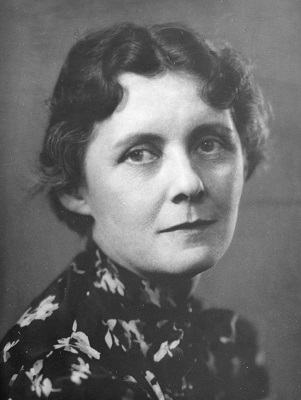
Olga Louise Bridgman (1886-1974)
The first Ph.D. in psychology awarded by the Philosophy Department in 1915. With an M.D. from the University of Michigan and her doctorate, Bridgman was immediately appointed in 1915 as an instructor in abnormal psychology and pediatrics. She divided her time between the UC Medical School in San Francisco and the Berkeley campus, rising through the professor ranks and becoming an Professor Emerita in 1956. Alongside research contributions to mental deficiency and child psychiatry, Bridgman was known as a gifted teacher, consulted widely to clinics, well-baby centers, and juvenile courts, and served on numerous state and national boards, including the Orthopsychiatric Association. Informed by clinical cases and the scientific method, her contributions were among the earliest examples of clinical psychology in an American university.
Read about Olga Bridgman
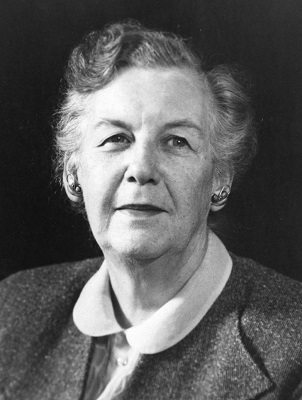
Jean Walker Macfarlane (1894-1989)
The first doctorate from newly formed Psychology Department in 1922. Macfarlane had also received her undergraduate degree at Berkeley in 1917. After postdoctoral training in clinical psychology and an appointment at the UC Medical School in San Francisco, Macfarlane returned to Berkeley’s Psychology Department in 1924, beginning as an Assistant Professor and becoming Professor Emerita in 1961. She held an appointment as a Research Associate in the newly established Institute of Child Welfare, now the Institute of Human Development (IHD). Known for her initiation of the famous Guidance Study, a longitudinal and empirical investigation of the development from birth to maturity of 250 normal infants born in 1928-29 in Berkeley, she also created the first formal clinical psychology program at Berkeley, recognized as one of the best in the country. Macfarlane assumed the presidency of many psychological associations and was honored with two awards for scientific contributions from the American Psychological Association, in clinical psychology (1963, as the first woman) and in developmental psychology (G. Stanley Hall Award in 1972). She also had a lane on campus named after her which is adjacent to Psychology’s former building, Tolman Hall.
Read about Jean Macfarlane
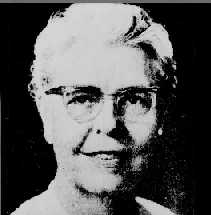
Nancy Bayley (1899-1994)
The first woman to win the Distinguished Scientific Contribution Award of the American Psychological Association in 1966. Bayley served as a lecturer in Psychology—well known for her course on the developmental assessment of infants and children. With a Ph.D. from the University of Iowa, Bayley was invited in 1928 to join the Institute of Child Welfare, now the Institute of Human Development (IHD) at Berkeley, as a research psychologist, where she remained (except for 10 years as chief of the child development section at the National Institutes of Mental Health) until her retirement in 1968. As the initiator of the famous Berkeley Growth Study and the creator of the Bayley Scales of Mental and Motor Development, used worldwide as standardized measurements of infant development, Bayley was acknowledged as a pioneer in the field of human development.
Read about Nancy Bayley
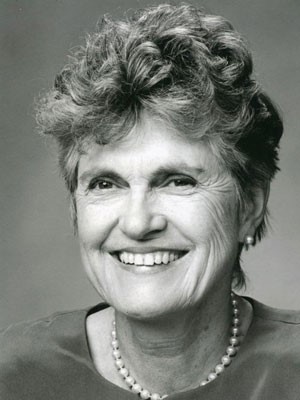
Susan Ervin Tripp (1927-2018)
Co-author (with Professors Blumer, Colson, Newman, and Scott) of the 1970 Report of the Sub-Committee on the Status of Women on the Berkeley Campus. This infamous report, a year in the making, set the foundation for affirmative action for female faculty (at historic lows), salary equity, and accountability through the monitoring of progress. With a Ph.D. from the University of Michigan, Ervin Tripp came to Berkeley first as a visiting professor in Psychology in 1958-1959, then held an appointment in the Department of Speech (now Rhetoric), and finally returned as a full professor to Psychology in 1975. She became Professor Emerita in 1999. Ervin Tripp was a founding leader in the emerging fields of psycholinguistics and sociolinguistics—engaged in path-breaking work in child language, bilingualism, and in the application new technology to the study of everyday communication. Among multiple honors for her research, she was named one of two Annual Faculty Lecturers by the Academic Senate in 1994. Ervin Tripp was also a pioneer on this campus in advancing gender equity—as the second Chair of the Senate Committee on the Status of Women, as an Ombudsman, and as a campus “nudge” for women, work that she continued until her death. An oral history is available as are her archives, which document decades of her activism on behalf of Berkeley women.
Read about Susan Tripp
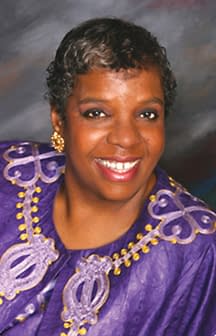
Diane Howell (1950-2009)
The first African American woman to receive a doctorate in psychology in 1978. Howell practiced clinical psychology for many years but also engaged in wide-reaching and consequential community action. She served as president of the Bay Area Association of Black Psychologists (1983) and started a newsletter entitled Black Perspectives (1984) to raise the visibility of the organization. To promote economic and career development in the African American community, she founded and published the Black Business Listings in 1989 (that continued for 20 years), and in the early 1990’s, she began producing the annual Oakland Black Expo. In 2000, she established the non-profit organization SEEDS (Self-Empowerment through Education, Entrepreneurship, and Dreams) which provides scholarships for youth. Howell received many awards for her economic, political and philanthropic work and a collection of her papers as an activist is available at Bancroft Library.
Read about Diane Howell
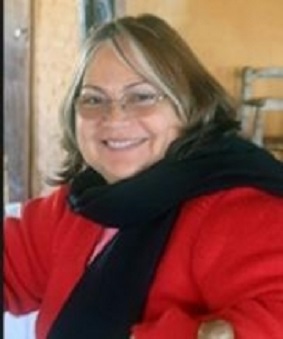
Yvette G. Flores
The first Latina doctorate holder in psychology to pursue an academic career. Born in Colon, Panama and raised in San Jose, Costa Rica, Yvette Flores migrated to the United States in 1965. The challenges of migration for her family fueled her interest in psychology. Flores completed a doctoral degree in clinical psychology at Berkeley in 1982. A Professor of Chicana/o Studies at UC Davis, she developed a family and community health emphasis within the department. Flores’ career has combined research, teaching and clinical practice. Author of the book Chicana and Chicano Mental Health: Alma, Mente y Corazon (2013), her research focuses on issues of gender, sexuality, class, and ethnicity, and includes studies on reducing obesity in Mexican origin children, intimate partner violence among Mexicans on both sides of the border, and substance abuse treatment outcomes. She served as a co-investigator of a National Science Foundation grant to increase the numbers of Latinas in STEM fields.
Read about Yvette Flores
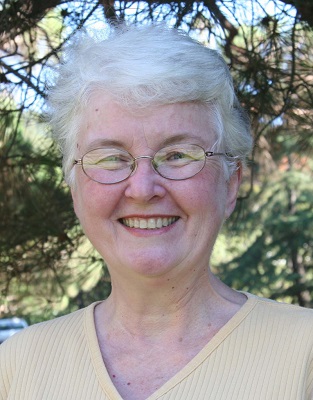
Karen De Valois
The first female Chair of Psychology (1998-2003). Following a decade spent as an independent principal investigator in the laboratory of her collaborator/husband, Professor Russell De Valois, as instructor, and adjunct professor, Karen De Valois became an Associate Professor in 1982—with a split appointment in Psychology and Vision Science in Optometry. The De Valois’s were the first couple in Psychology to share a faculty position. From these beginnings to her appointment as the first female chair (110 years after psychology had its start at Berkeley), De Valois became a pioneer. She was appreciated for a career of remarkable service to the campus, including being the first woman in psychology to serve on and chair the Committee on Budget and Interdepartmental Relations. De Valois is also internationally known for the development of an advanced and highly influential multi-stage model of color information-processing in the visual system and for the widely-cited book Spatial Vision (1988), the latter written with her husband. Her honors include induction into the Society for Experimental Psychologists in 1992, for which she served as Chair in 2001-2002; she became Professor Emerita in 2008.
Read about Karen De Valois
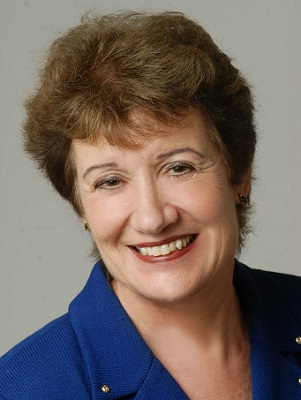
Christina Maslach
The first Vice Provost for Undergraduate Education in 2001. Maslach chaired the Berkeley campus’s Commission on Responses to a Changing Student Body (1981), won the Distinguished Teaching Award (1987), and was named Professor of the Year by the Carnegie Foundation (1997)—making her an ideal candidate to take this senior leadership role on the Berkeley campus. Maslach held other important administrative positions such as the Faculty Assistant to the Chancellor on the Status of Women and Chair of the Academic Senate. Maslach’s appointment in 1971, as an assistant professor of Psychology, occurred after a 42-year hiatus in the appointment of women in the faculty ranks. Currently Professor Emerita, Maslach is known for her pioneering research on job burnout, for the development of the Maslach Burnout Inventory (MBI), the most widely-used research measure in studies of this phenomenon, and for her many books, advancing understanding and promoting organizational renewal. Among many honors, her most recent is from the National Academy of Science for Scientific Reviewing—her work playing a role in the recognition of burnout as an occupational phenomenon by the World Health Organization.
Read about Christina Maslach
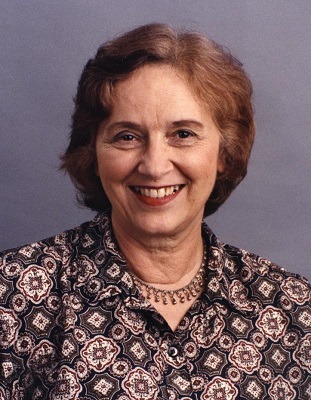
Anne Treisman (1935-2018)
Awarded the 2011 National Medal of Science. The nation’s highest honor, presented by President Barack Obama, lauded Treisman "for a 50-year career of penetrating originality and depth that has led to the understanding of fundamental attentional limits in the human mind and brain." Psychology at Berkeley was enriched by the senior appointment in 1986 of Professor Anne Treisman, “one of the most influential cognitive psychologists in the world.” After positions held at Oxford and the University of British Columbia, Treisman spent seven fruitful years in our department, and upon her move to join the Princeton faculty, became Professor Emerita in 1993. She conducted classic and elegant experiments on auditory selection, applying what she learned to studies of memory and consciousness. “Feature Integration Theory” was a major formulation that fueled thousands of investigations in numerous disciplines.
Read about Anne Treisman
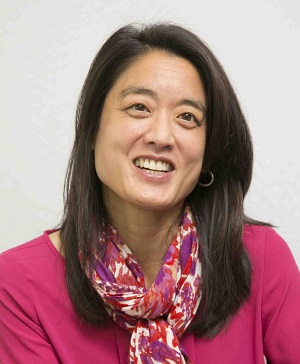
Serena Chen
First Asian American Chair of Psychology, incoming as of July 2020. First appointed in 2001, Serena Chen is currently Professor of Psychology and the Marian E. and Daniel E. Koshland Jr. Distinguished Chair for Innovative Teaching and Research, Chen is also Vice Chair of Undergraduate Affairs for the department and Faculty Director of the Berkeley Collegium. Chen’s research focuses on the relational self (how interactions with significant others shape identity, self-evaluation, and self-regulation), the role of power differentials in interpersonal interactions, and the psychological consequences of economic inequality. Her many honors include an Early Career Award from the International Society for Self and Identity, identification as a Rising Star by the American Psychological Society, and the Distinguished Teaching Award from the Division of Social Sciences.
Read about Serena Chen